SUMMARY
This is AI generated summarization, which may have errors. For context, always refer to the full article.
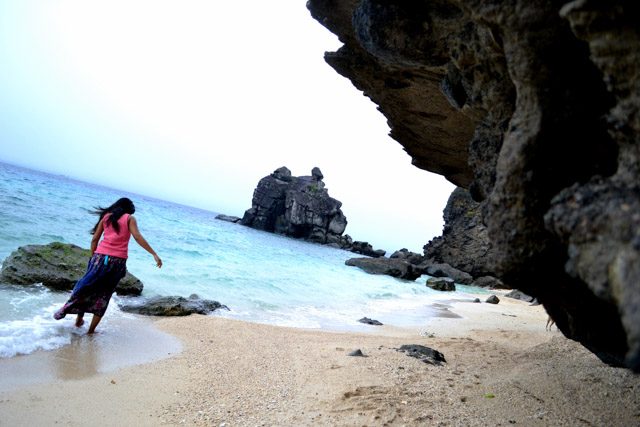
“Porener imong uyab no?” (Is your boyfriend a foreigner?) asked the passenger beside me. We were on the old van to Biliran from Ormoc. I knew this question was coming, but I asked nonetheless why she thought so. I have the looks, she supplied – slender, long-haired, dark. Foreigners go for that “exotic” look.
I could let it pass if she stopped there. There is some truth to it except for the exotic part. I’m long-haired, dark because I stay out in the sun and walk around the city regardless of the heat, and relatively slender – this depends on the fluctuating graph of my gluttony. And at that time, I was seeing an American. But the way she phrased it sounded like I am intentionally dark, long-haired, and starved myself to death to look exotic for the foreign eye.
She tailed the sentence with “kay maka-afford man kag laag (because you can afford to travel), and then she looked at my camera. This was not the first.
I have learned to weather rough seas like the one that connects my island, Cebu, to hers. I have learned to read the sea, its amiable and deceptive character. I have yet learned to cross the rivers of prejudice and bigotry that flow and fork in the minds of my own people. Especially from my own people.
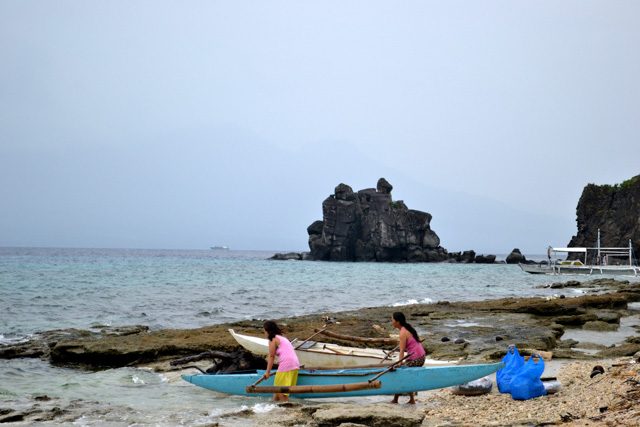
Some summers past, during my early years of backpacking, the kids at Siargao asked if I had a laptop, a camera, and a smartphone – which for the uninitiated minds are symbols of wealth. They cross-examined me, asking if my Western boyfriend bought them for me. I had just started out traveling solo then, and I did not expect such questions from kids, especially from kids.
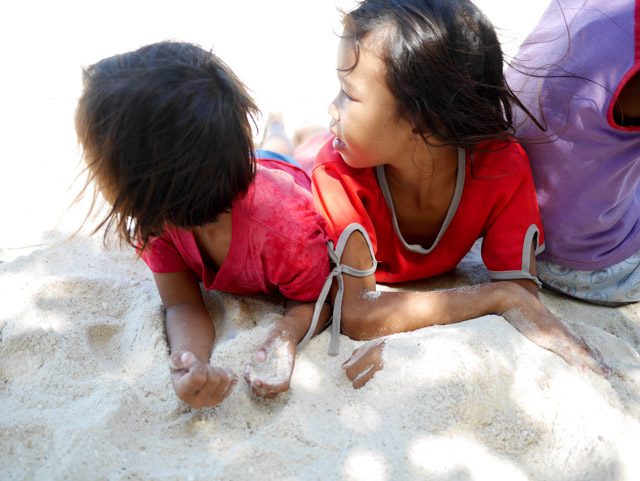
Getting angry would be easy. But they grew up on an island known for the waves foreign surfers visit, they grew up seeing local women of my skin color walking around with their foreign partners.
That afternoon, the violent sea by Cloud 9’s boardwalk became our classroom. I told them stories of my childhood, of the places I have been and those I ached to visit. I told them, after our swim, there are deadlines waiting for me once I turn on my laptop. I told them in Cebu I had a day job and several online jobs. I told them I take photos for money. I told them my then-boyfriend was a teacher, and he was poor but rich in love for kids. I told them my hunger for places was as deep as their love for the waves licking our backs.
When I got back to the resort, I called him and retold the story. The crying was inevitable.
These elementary kids – who are poor in material wealth – have been brainwashed or programmed to think the easiest way to get rich is to marry a foreigner, presumably an older one.
That night at Siargao while sharing the table with a local girl, the talk predictably took a turn to the pros and cons of having a foreign partner regardless of his age. And by foreign, we refer mostly to Westerners. She received a monthly allowance. She lived a comfortable life. No, she was not speaking for the rest of us. She was speaking for herself. She had been in an abusive relationship, and she was just as practical as I was stubborn.
Some do not think so. To say my ex – who was unaccustomed to the third worldly ways of traveling – was shocked every time he saw a young Filipina with an old foreigner who could pass as his grandpa would be an understatement. It is their choice, I would say. He would then take the issue personally. How the guy took advantage of the girl’s vulnerability. How f*cked up his own people were.
Recently, in between tequila shots, a Canadian tourist – who intentionally dropped the word writer and the name of the university I was teaching in front of the resort’s bartender so I would not be mistaken as a hooker (but at the back of my mind, he did it for his own sake) – kept on bringing up the case of his friend’s date that night. This 23-year-old single mom’s foreign lover paid for her apartment rent, while her petite 20-year-old sister married a fat old westerner. He would later insist it was not a matter of choice at all. If I – he said – would date one, it would be a life I chose for myself. But this girl, he pointed out, thought there was nothing else for her. This was the only way out, and it was saddening, he said.
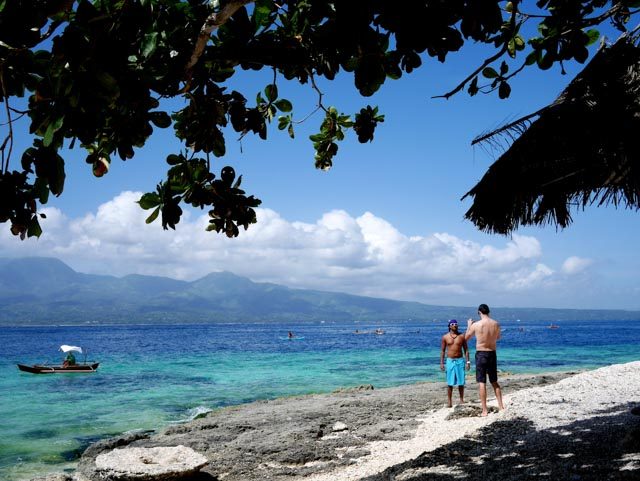
I was tempted to agree with him. But why do we see a young Filipina and an old foreigner in the first place? Why can’t we see two people in love with each other? Is it not possible?
“It isn’t. Or it’s hard. Especially if the girl wears a skimpy dress and walks awkwardly in 3-inch stilettos in the country. It’s hard, if the guy just does the talking and the woman feigns interest. It’s even worse when they do not talk at all – the guy staring blankly in the horizon, the girl tinkering with her phone.”
That is just a case of bad fashion, I said. And I know an interracial couple – an Italian guy and a Filipino girl – who are crazy about each other but rarely talk in public. I have some high school classmates who married Westerners twice their age, and it seems like the marriage is working just fine.
Just like the kids at Siargao, the people in my hometown think marrying a foreigner is the answer to poverty. Unsolicited, unintentionally hurtful words like “Ay, Nene (my mother), modato namo. Naay foreigner si Jona.” “Ay, Nene, you would be rich. Jona got a foreigner.” (Got, not has, because people made it sound I caught a big fish.) My family has to defend me because they know better than anyone else that rumors like this would bring out the lurking tigress-female bull hybrid in me.
When I voiced out the uncertainty of the path I chose for myself – not getting a routine 8-5 job and juggling three for freedom instead – even some of my so-called friends in the city would say, “It’s all right, you got a foreign boyfriend.” That is utterly offensive. A boyfriend, regardless of his race, is not a bank. One’s life is not someone else’s responsibility. I tend to preach this to close girlfriends. Over and over again.
It seems like my own people’s prejudice against young dark-skinned women is not as varied as the islands of our archipelagic country. It is singular. Painfully singular. I wonder if fair-skinned Filipina travelers are asked the same question.
More from Jona Branzuela Bering

Last month, while biking my way from my secret beach to the highway somewhere in southern Cebu, I stopped by the kalachuchi tree to admire its beautiful leafless branches and waited for a school girl to pass so I could frame her with the tree. A shirtless local resident propped his torso against the threshold and asked if the old foreign guy he saw walking earlier was my husband.
While touring with two gigantic Canadian doctors through Oslob’s whale shark interaction, the boatman joked it would be fine if I dropped my underwater camera because I got a foreigner. While walking around Apo Island, a woman hand-washing by her house stated my husband must be a foreigner because I traveled alone and walked around with an expensive camera. Does this mean, a Filipino partner would not allow his girlfriend to travel alone?
And just this weekend, a young local man at Malapascua accused my friend and me that we would only go out with the foreigners we chatted with after the disco in the barrio. He looked to his friends for support and a possible resbak. We ran away from him laughing and made sure all windows and the door of our room were locked.
Gay, the lovely woman behind pinaytraveljunkie.com, trots the world with Luna, her baby girl. And sometimes she is asked about the age of her daughter’s father. And she always quips, “I am older.”
Even Lea, a free spirit I met at Coron and an Instagram sensation, is not spared for she chose to stay out in the sun. She was born rich and manages the resort her parents built in Siargao.
Emily – a Filipina traveler I admire, and by the way, has a Filipino partner and has never had a foreign boyfriend – found this unjust. There were times she would really avoid foreign travelers who approached her. She was afraid of what others would say. She then realized she wasted a lot of possibilities of genuine friendship.
In my case, every time I make a major purchase like a camera, I sometimes feel the need to explain how I funded it. I quit going to my favorite coffee shop because I noticed it became a meeting place for old expats and their young girlfriends.
Pained and offended from a series of humiliations, I once asked an old foreign diver I met at Apo Island, “Why do you go out with a young Filipina in the first place? Why don’t you go out with a woman your own age? Why?” I knew I sounded rude.
“Because she said she loved me,” shared a bulky diver in his mid-50s.
“And you believed it? What if it’s your money she’s after?”
“Because I thought it was true. But then she eloped with her Filipino boyfriend.”
Perhaps these older guys, just like the rest of us, are simply looking for love. (If someone were looking for true love, why would he search for girls generations younger than him, my ex rebutted.) Perhaps the Siargaonon girl loves her man, and him supporting her financially is just consequential. (And frankly, it does not take an interracial couple to have this set-up.) Perhaps the girl who eloped with another man did not find the love she was looking for with this diver expat. I don’t know.
In confusing moments like this, I take comfort from poetry. Who can teach a heart what the heart desires? A Merlie Alunan poem would be a good reminder at times like this.
Some would ask why I could not just bypass these. I sometimes do. I sometimes joke about it. Like in Oslob, while I was buying three bottled waters, a man asked if I was there with a Westerner. And I said yes, two of them. And he asked who my boyfriend was, and I joked I loved both of them. He wanted to apply as the third. We had a good laugh.
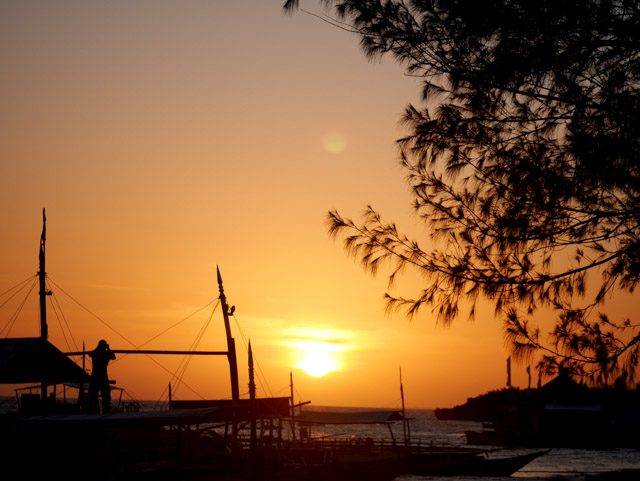
But most of the time, it feels like a moral guillotine pushed against us dark Filipinas.
The story is not just about my bruised female pride. It reflects how our society sees its women – dependent and powerless. It reflects how dark skin is viewed by many as the color of poverty, seldom of beauty and independence.
“Strong,” as Gay captioned in the photo of Luna sitting on her tummy while doing a yoga pose, “is not the new sexy, it has always been the sexy.” It has always been. But many people choose to look the other way.
Even the titling of this essay did not come easy. I originally chose “dark,” but a male writer friend suggested changing it to “sun-kissed” instead because it sounded poetic, while “dark” sounded “fetishized” and “exoticized.”
“Sun-kissed,” I thought, would work just fine for travel brochures; “dark,” for me, sounded more powerful and direct. “Exotic” did not cross my mind. A female traveler asked why “dark” was even there.
Or why write this article in the first place?
Does it mean I am just one of the very few who have this concern? Am I just over-analyzing?
Foreign acquaintances say they find our TV commercials odd. A minute would not pass by without an ad on whitening lotion or soap. They often see local girls scamper towards the shade or worse, stroll around the beach with an umbrella or a towel on their heads. We are obsessed with whiteness, and I feel like we still have many colonial hang-ups. And admittedly, this is one of the reasons I rarely travel with girlfriends. Although I love them, it is sometimes annoying to see them all covered up on the beach like they are going to trek Mt. Apo. When they travel with me, I have a list of dos and don’ts. No whining about the heat tops the list.
Even my family and close friends make fun of my skin. They sometimes called me uling, charcoal, lagum, dark. Emily – a surfer, a trekker, and a runner – felt betrayed by her own people when they prioritized westerners over her. Reiza, a Pinay living and working in Africa, learned how to fight back every time she got teased.
Isn’t staying dark or whitening one’s skin just like choosing what pad to use when that time of the month arrives? Isn’t it a matter of conscious decision? Or maybe I just wish it were that simple. Friends who are literary critics, I know, would have isms ready at their disposal. Say, the fixation with whitening one’s skin is a (by)product of neocolonialism.
Perhaps getting and staying dark is a form of statement, a form of protest against our patriarchal, whitening product-obsessed society.
My skin color, my hair, my body are testaments to my being. They mean I have reached places and continue to do so. I am Jona. I choose to travel. – Rappler.com
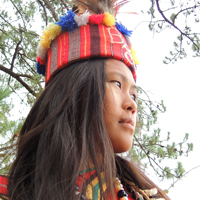 Jona Branzuela Bering is a writer and photographer from Cebu, Philippines. When she is not traveling, she gardens, teaches, and becomes the slave of two cats. She is scared out of her wits about traveling in Asia alone this coming June and July. Follow her travels on Instagram @travelingjona or on her blog Backpacking with a Book.
Jona Branzuela Bering is a writer and photographer from Cebu, Philippines. When she is not traveling, she gardens, teaches, and becomes the slave of two cats. She is scared out of her wits about traveling in Asia alone this coming June and July. Follow her travels on Instagram @travelingjona or on her blog Backpacking with a Book.
Add a comment
How does this make you feel?
There are no comments yet. Add your comment to start the conversation.